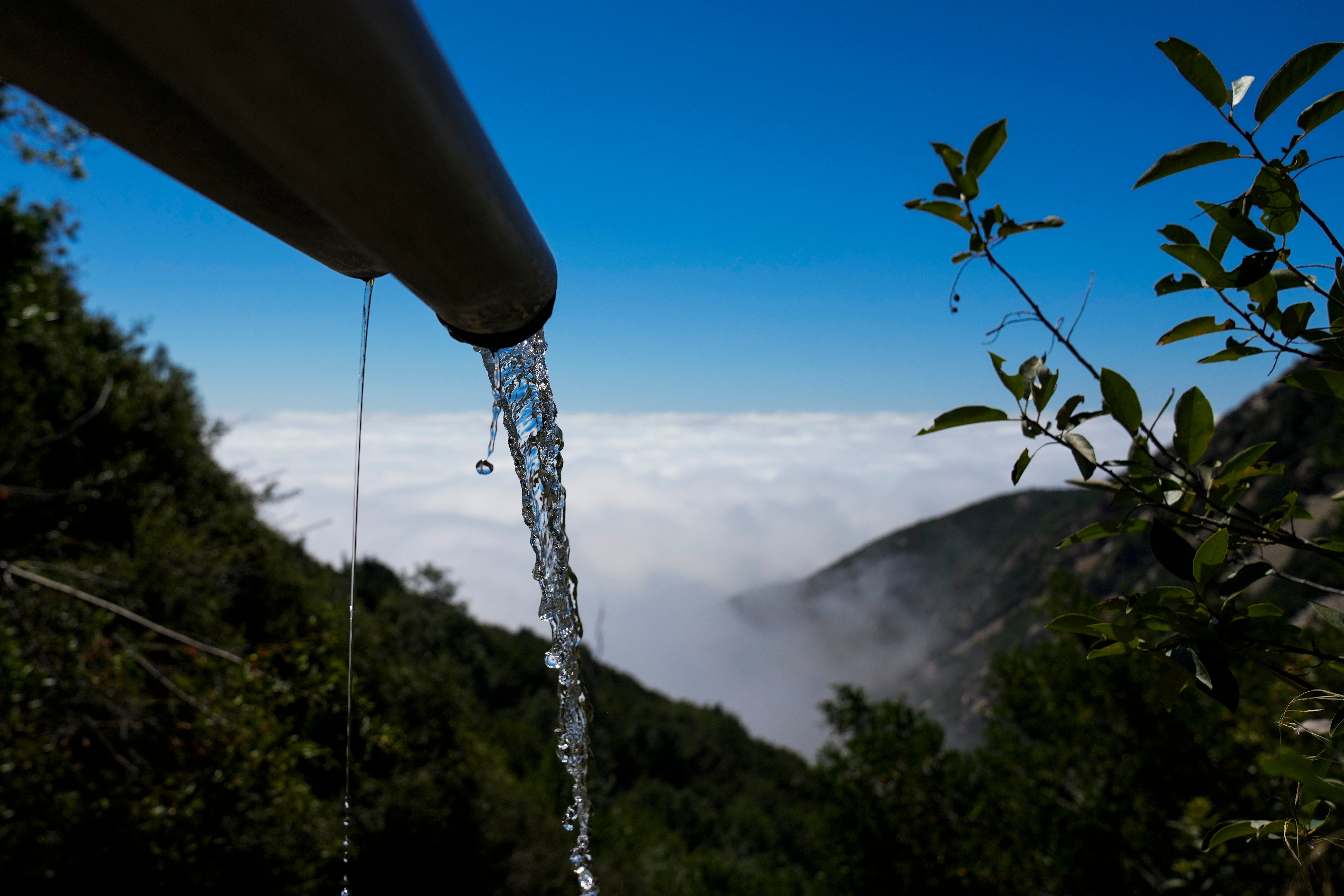California orders bottled water company to stop taking millions of gallons from springs on public land
Ruling will affect millions of gallons of water a year in San Bernardino Mountains
A California resource regulator ruled on Tuesday that the company selling Arrowhead Mountain Spring Water must “cease and desist” from much of its operations drawing spring water from a spring in the San Bernardino National Forest, in a major victory for local groups and environmentalists who had been challenging the firm’s access to water running through the public lands.
“I understand a huge amount of money and business is at stake,” said State Water Resources Control Board member Laurel Firestone on Tuesday of the ruling. “It also is important for us that no matter how much money is involved, that we are going to ensure that the laws of our state are upheld and that they apply to everybody.”
“I’m thrilled that California’s State Water Resources Control Board adopted the cease-and-desist order against BlueTriton Brands’ unauthorised diversions in Strawberry Canyon for Arrowhead bottled water,” Lisa Belenky, senior counsel at the Center for Biological Diversity, told Courthouse News. “By adopting this order, the state took a critical first step toward protecting this creek and Strawberry Canyon’s springs, as well as the fish, wildlife and riparian vegetation that depend on these waters.”
The order found that the company doesn’t have permission to use the water, despite BlueTriton claiming it has rights to the water dating back over 100 years.
The cease-and-desist decision applies to most of the company’s tunnels and boreholes drawing from the spring, impacting about 80 per cent of the water it draws from the Strawberry Creek watershed. BlueTriton must comply with the order by 1 November.
The company drew an estimated 46.5m gallons from the source in 2021.

The company said in a statement after the decision that the water board’s ruling “creates water rights uncertainty” and that BlueTriton will “vigorously defend our water rights through the available legal process.”
Arrowhead’s claims to the water came under scrutiny in 2015, when an investigation by the California newspaper Desert Sun found that BlueTriton’s predecessor Nestlé had been drawing water under a US Forest Service permit with a listed expiration date of 1988. The company eventually got a new five-year permit in 2018.
In 2021, however, the state water board concluded that BlueTriton lacked rights to its sources in the mountains, prompting a further set of hearings culminating in Tuesday’s decision.
In 1906, a California man named Seth Marshall began selling water branded “Arrowhead Springs” at a hotel near the company’s eventual claims.
BlueTriton argued its rights to the site date back to before 1914, when California began regulating how people use water, granting it seniority in the state’s complex system of water rights. The company further claims that the state regulator didn’t have authority to declare a cease-and-desist over their claim because it doesn’t involve surface water.
The state, meanwhile, argues the Arrowhead claim only dates back to 1929, meaning the company doesn’t have seniority.
Local residents say the company’s operations in the watershed have had a negative impact.
“Strawberry Creek can no longer support fish,” Amanda Frye of Redlands told The Associated Press. “Essentially they inserted a straw into each spring and diverted it down the mountain to their trucks to take it away.”
Join our commenting forum
Join thought-provoking conversations, follow other Independent readers and see their replies
Comments


Bookmark popover
Removed from bookmarks